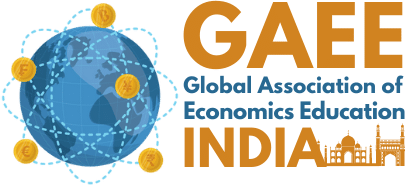In turbulent times of conflict, the reverberations extend far beyond the battlefield, infiltrating the intricate web of economies and businesses. This phenomenon, where wars disrupt economic stability and cripple businesses, has profound and far-reaching implications. From supply chain breakdowns to investor hesitancy, the multifaceted impacts of warfare on economic landscapes are significant.
One of the primary economic disruptions caused by wars is the breakdown of supply chains. When conflict zones sever production and distribution networks, businesses face delays, shortages, and increased costs. Factories are destroyed, transportation routes are cut off, and trade routes are blocked, leading to substantial logistical challenges. This disruption is further compounded by the damage to critical infrastructure, such as roads, bridges, ports, and utilities, essential for facilitating trade and commerce.
Wars also precipitate a significant loss of human capital. Skilled workers often flee conflict zones for safety, depriving economies of vital talent and expertise. Those who remain may be unwilling or unable to work due to the dangers of war, resulting in labour shortages and reduced productivity. This human resource drain severely hampers economic growth and development.
Fiscal strains during wartime are another critical issue. Governments typically increase spending on defence and security, often at the expense of social programs and infrastructure investment. This diversion of resources can lead to budget deficits, increased borrowing, and debt accumulation, further destabilising economies. Additionally, wars can cause currency devaluation and inflation, eroding purchasing power and destabilising financial markets.
For businesses, the impacts of war are manifold and severe. A notable effect is the decline in consumer demand, as conflict-prone populations prioritise basic needs over discretionary spending. This shift leads to decreased sales and revenues across various sectors. Investor uncertainty further compounds business challenges, as heightened geopolitical risks deter investment and constrain access to essential funding.
Operational challenges are equally daunting. Businesses must contend with security risks, logistical hurdles, and resource scarcity. Ensuring the safety of personnel and assets becomes paramount, while disrupted supply chains exacerbate operational inefficiencies and increase costs. In many conflict zones, businesses are forced to relocate or shut down, losing livelihoods and economic activity.
To combat these challenges, businesses adopt various coping mechanisms and counter strategies. Diversifying supply chains to reduce dependence on conflict-prone regions is a crucial approach. Risk management strategies are crucial, such as hedging against currency fluctuations and geopolitical risks. Innovation and resilience are also essential for businesses to leverage technology and adopt flexible models to enhance operational efficiency.
On a policy level, governments and international bodies play a critical role in mitigating the economic impact of wars. Providing financial support, implementing tax incentives and facilitating access to credit can stimulate recovery and growth. Protecting critical infrastructure and ensuring the safety of businesses and employees are also paramount. International cooperation and diplomacy are indispensable in preventing and resolving conflicts and promoting global stability and economic prosperity.
Thus, the intricate relationship between wars and economic disruptions underscores the need for comprehensive understanding and proactive strategies. By embracing diversification, resilience, and collaboration, businesses can better navigate the challenges posed by conflict-ridden economies. Concerted policy efforts at both national and international levels are essential for mitigating the adverse effects of wars and fostering a resilient and prosperous future.
Author:
Anusha Lakhotia
B.A. (Hons.) Economics
Indraprastha College for Women
Editors:
Aidamon Talang
Editor-in-Chief, GAEE India
Shruti Sangwan
Associate Editor, GAEE India

Recent Comments